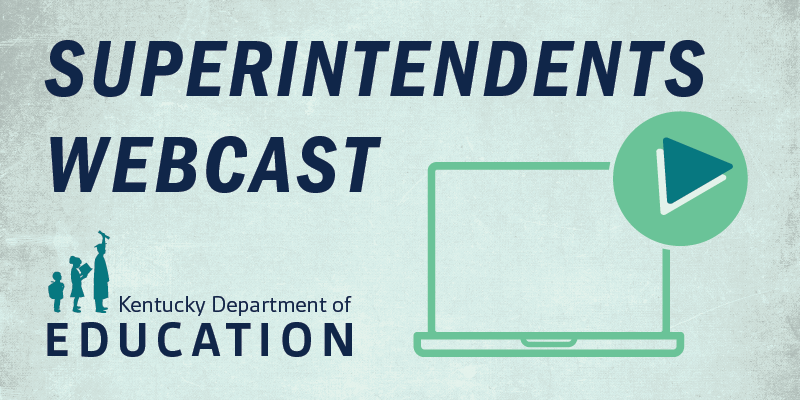
The Kentucky Department of Education’s School Curriculum Assessment and Accountability Council (SCAAC) received updates regarding diversity, equity, inclusion and belonging (DEIB) and the Local Laboratories of Learning (L3s) during its March 15 meeting.
Nicole Fields, community engagement coordinator in the Office of Teaching and Learning at the Kentucky Department of Education (KDE), shared resources, strategies and updates on the work KDE is doing to improve diversity, equity, inclusion and belonging for students across the state.
Fields said KDE has a new website for DEIB, which includes additional resources such as the Equity Toolkit.
She also provided insight on the Equity Dashboard, which provides live data – only to a district level person with access – through Infinite Campus on the under- or over-representation of various demographic groups on several indicators, including special education, out-of-school suspension, gifted and talented, advanced coursework/dual credit, career and technical education (CTE), benchmarks and more. The dashboard is designed to offer a “big picture” look to help schools and districts identify areas needing further attention.
Fields shared a sample of Real-Time Data from the Equity Dashboard, which showed what groups are at-risk of under-representation or over-representation based on race and ethnicity. The data in the Equity Dashboard is predominately based on current year data, except for the CTE Completers indicators. Therefore, the data represents the students currently in a school or district when the data is accessed. Although the data is considered to be “real-time,” the Equity Dashboard does not sync continuously with Infinite Campus. For most indicators, data is updated either weekly or daily.
The sample showed that 5,085 out of 73,721 Black students had received out-of-school suspension, compared to 12,426 out of 604,874 non-Black students. Black students are 3.35 times as likely to receive an out-of-school suspension as non-Black students, meaning this group is over-represented in this category.
Fields also briefly touched on Individual Learning Plans (ILPs), which help students prepare for life after graduation by providing resources such as exploring careers, creating education plans and establishing personal goals.
KDE is currently working with Kentucky Education Television (KET) to create Asynchronous Safe Spaces courses for all educators with micro-credentials, and requests for proposals (RFPs) are out for live coaching on diversity, equity, inclusion and belonging for co-ops, districts and schools.
KDE staff also are looking at creating a podcast highlighting heroic stories and practices in Kentucky schools, as well as a monthly newsletter for stakeholders throughout the state.
L3s
Sarah Snipes, program manager of KDE’s Division of Innovation, provided updates on the state’s Local Laboratories of Learning (L3s). L3s give districts the opportunity to form deeper connections with their communities by forming local inclusive coalitions to pilot new assessment, accountability and learning approaches that will help shape Kentucky’s next assessment and accountability system and influence policy at the state and federal level.
There are currently two active cohorts, which is a total of about 14 districts, and KDE is preparing to launch a third. One of the two active cohorts is in the testing stage, which includes feedback testing through surveys and interviews in order to refine their prototype. The second cohort is just beginning the process of empathy interviews in their communities.
Snipes gave examples of current L3 prototypes, including Logan County, which is developing a dashboard to display students’ successful attainment of profile competencies, academic success, participation in internships and extracurricular activities.
KDE is currently accepting applications for cohort 3. The deadline is March 22. District superintendents can email Sarah Snipes for more information.
Assessment and Accountability Update
KDE Associate Commissioner Rhonda Sims and Jennifer Stafford, division director in the Office of Assessment and Accountability, shared various updates regarding testing and the accountability system.
Upcoming Testing:
- The ACT window 2 (makeup testing for some districts) opens March 22.
- The Alternative Kentucky Summative Assessment is open from April 18- May 27.
- Kentucky Summative Assessment is the last 14 days of the district’s instructional calendar.
Updates for the 2021-2022 and 2022-2023 accountability system include:
- For the 2021-2022 school year, accountability indicators are based on status only (current year performance). Indicators include state assessment results in reading and mathematics, science, social studies and writing, progress on English language proficiency, quality of school climate and safety survey, postsecondary readiness, and graduation rate.
- For the 2022-2023 school year, accountability indicators are based on status and change. Status is the current year’s performance and change is improvement from prior to current year.
- This fall, schools will be identified for Comprehensive Support and Improvement to be supported in the 2022-2023 school year. The next identification will be in the fall of 2025.
- Schools will be identified for Targeted Support and Improvement in fall 2022 based on data from 2021-2022 only due to interruptions in testing caused by COVID-19.
- Additional Targeted Support and Improvement will not be identified in fall 2022.
SCAAC will have its next meeting on July 19.
MORE INFO …




Leave A Comment